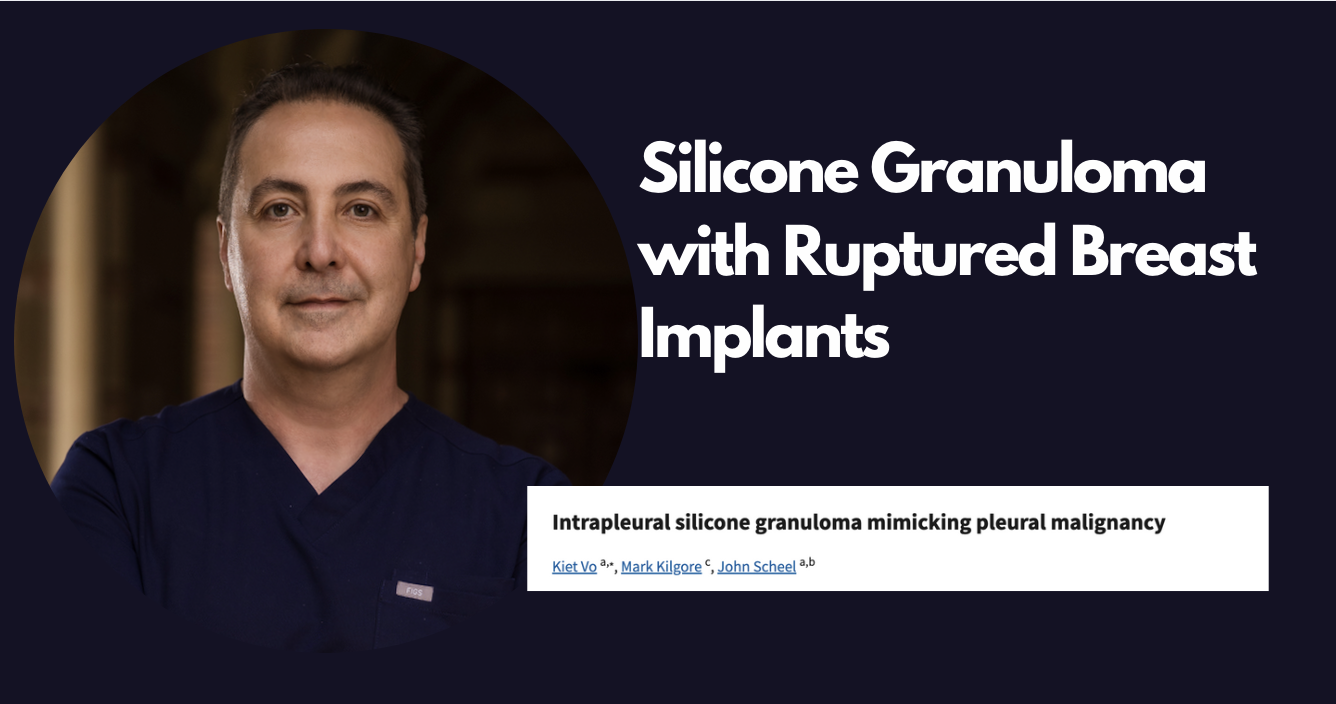It is very difficult to manage liquid silicone complications as they require vigilant maintenance of the soft tissue in order to avoid potential exacerbation of inflammation and infection. Liquid silicone biopolymers are a lifelong problem and can present early after injection or late thereafter.
Dr. Raffy Karamanoukian is an expert in the management of liquid silicone complications in the United States and the Middle East. His expertise includes non-surgical management of liquid silicone as well as surgical removal of the material. Dr. Raffy Karamanoukian has developed a grading scale for soft tissue reaction that is used throughout the world, known as the Karamanoukian Severity Scale for Soft Tissue Reaction.
The following tips can help you manage silicone biopolymer complications:
EARLY TREATMENT
The treatment of silicone biopolymers is not always surgical. Patients require early diagnosis and maintenance treatment to avoid soft tissue fibrosis and inflammation. Pigmentation of the skin, fibrotic soft tissue changes, granuloma formation, and symptomatic pain, itching, and discomfort should be managed preemptively. Depending on the situation, anti-inflammatory steroids or antibiotics can be prescribed.
"Our goal in silicone biopolymer management is to remain vigilant. Patients benefit from early diagnosis and treatment." Dr. Karamanoukian
AVOID INFLAMMATORY STIMULANTS
Systemic inflammation should be avoided. If you have silicone biopolymers that are causing you discomfort and pain, it is important to avoid aggravating the inflammation around the area and also physiologically throughout the body. Eczema, psoriasis, autoimmune dysfunction, and allergies can further increase inflammation in the body.
KEEP THE AREA CLEAN
It seems logical, but it is imperative that the areas around the silicone biopolymers remain clean and hygenic. With BBL, scrapes or cuts in the skin can expose the foreign material to infection or subclinical pathogens.
SEEK EARLY REMOVAL
Early removal is key. Dr. Raffy Karamanoukian is a world expert and can help you find less-invasive modalities for removal of silicone biopolymers, biopolimero, PMMA, and biogel. Consultations can be scheduled by calling our office at (310) 998-5533.

Breast implant rupture can lead to many different types of complications. Dr. Raffy Karamanoukian is a world expert in the management of silicone biopolymer fillers in the body, including the breasts. He is also able to manage severe complications arising from ruptured breast implants, including saline and silicone breast implants that cause systemic disease. When there is suspected clinical rupture of a silicone breast implant, Dr. Karamanoukian can evaluate the breasts to determine whether there is a high index of suspicion for silicone rupture. The contour of the breast, timeframe of change, asymmetry of the breast implants, new onset changes in breast shape and breast implant size can also be clinical indicators of implant rupture. Extracapsular and intracapsular rupture are both possibilities that can be assessed with either ultrasound or CT scan to reduce variables for detection.
In the case report reviewed by Dr. Karamanoukian, intrapleural silicone granuloma was detected on a patient who underwent a previous lung lobectomy after a diagnosis of lung cancer. Within the period after her lung surgery, she developed a reaction in her lungs that was initially attributed to a metastatic tumor. However, biopsy of the lesion demonstrated that there was an inflammatory granuloma on the breast that mimicked cancer.
Implant rupture and free silicone has the potential to migrate within tissue towards areas outside of the zone of injection. If you suspect lung involvement or other organ disease related to silicone granulomas; a consultation and examination with Dr. Karamanoukian may be warranted.